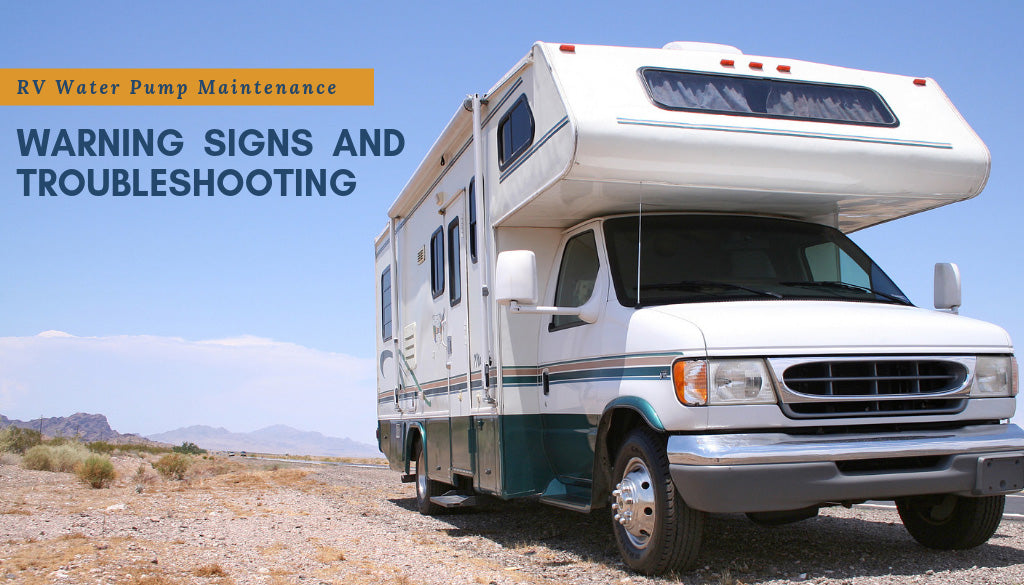An RV’s water pump is the heart of its entire plumbing system. An average-sized pump produces over three gallons of water per minute, while a larger one supplies a little over five gallons at the same rate. As such, we rely on them to keep our utilities functioning properly. That’s why it’s important to take stock of the signs your pump needs repairs and perform the necessary RV water pump maintenance.
Signs That Your Pump Needs Maintenance
Your RV’s water pump can display a series of signs that it needs repairs. From blown circuits to leaks and noises, these symptoms usually hinder the functionality of the pump and are very noticeable. Certain signs can also be characteristic of the problem. Therefore, being able to distinguish them can get you one step closer to making the necessary repairs.
Some signs you’ll want to be on the lookout for include the pump not starting, rattling noises when turned on, and leaking from the pump head or switch. Noises and leaks are often the results of loosened parts that you’ll need to retighten. Additionally, you might notice the pump rapidly turning on and off or that it won’t turn off at all. This often means that something is restricting the flow of water through the pump.
Troubleshooting Problems
Once you can identify the symptoms you’re experiencing, you can begin fixing the problem. This often includes retightening any loose mechanical components, replacing faulty parts, or cleaning clogged strainers to get better water flow. You will also need to know how to check the voltage of the pump to ensure it’s getting the proper amount of energy. For instance, if you’re having trouble getting your pump to start or stop, this can often mean there’s a problem with how much voltage it’s receiving.
Problem Prevention
To prevent future damage to your RV water pump, it’s crucial that you take the proper steps to sanitize it after use. You’ll also want to winterize it when you’re expecting a change in seasons. This process will preserve the pump and keep it functional after being off for extended periods. To sanitize your pump, RV owners often use bleach to purify the water holding tanks of any bacteria that could grow if left idle. As you do this, make sure you rinse the tanks and tubing out thoroughly to ensure there’s no remaining bleach present.
Then, when winter rolls around, be sure to fully drain the water tank to prevent any freezing within the system. As water freezes, it can expand and cause damage to mechanical parts. Since the cold also makes the metal brittle, it’s crucial that you further protect your RV’s pipes by using antifreeze.
If you’re unable to troubleshoot your RV’s water pump’s problems, you’ll need to purchase a replacement to keep everything functioning. At RV Water Filter Store, we offer a vast supply of RV pumps for you to choose from to increase the flow and pressure of your utilities.





